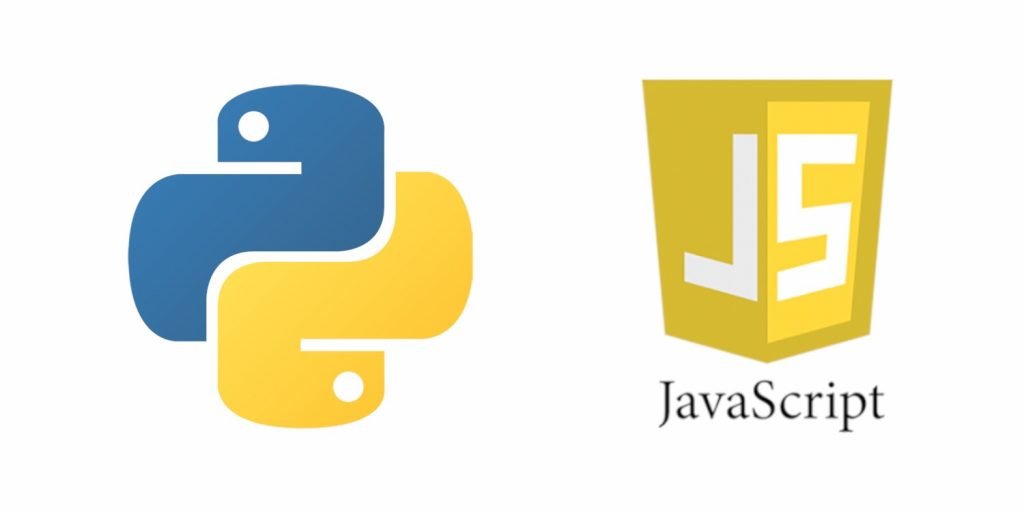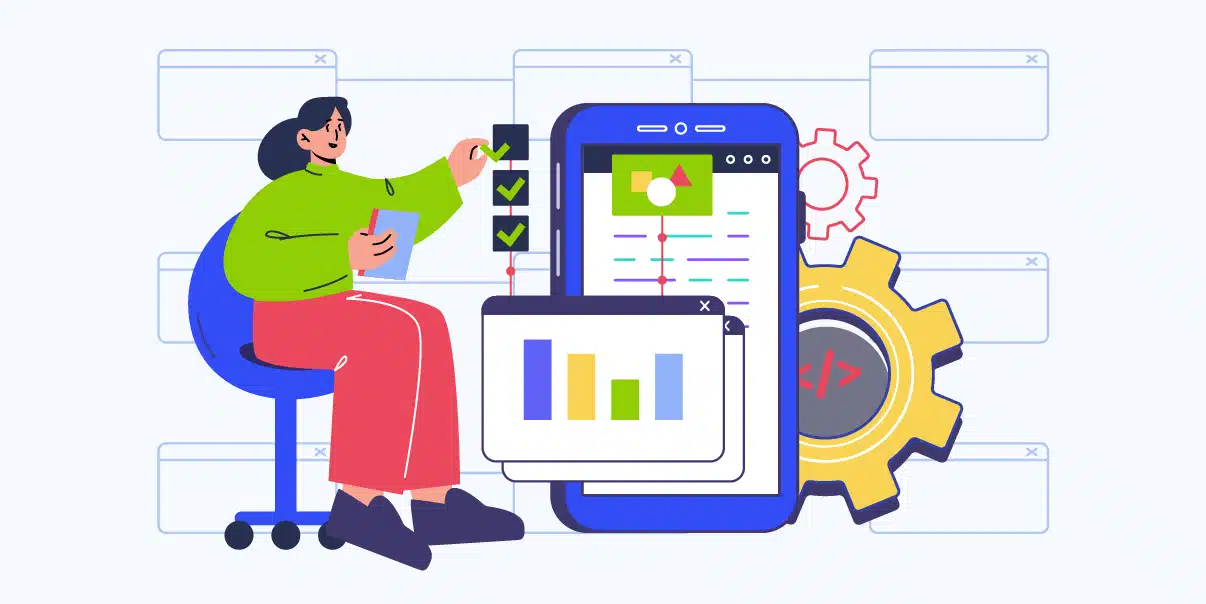The software development realm is constantly shifting and full of surprises. If you’ve been around for even a few years, you’ve seen firsthand the whirlwind of changes that sway developers and decision-makers alike.
Some tech makes a splash and quickly dominates, while others fade without much notice. It’s crucial to pick a technology that’s widely used, in high demand and has a range of applications before diving into a project.
To clarify some of the haze, let’s focus on two programming languages that catch our attention as a software development company: Python and JavaScript.
I. Quick Overview of JavaScript vs Python
With JavaScript, you can breathe life into your web pages by adding interactivity. It operates on the user’s web browser, meaning it doesn’t rely on the web server for resources. Not just for web pages, you can integrate JavaScript with tools like REST APIs, XML, and the like. Plus, technologies such as Node.js are now embracing JavaScript.
Python, on the other side, is considered a top-tier, object-oriented coding language. It comes equipped with ready-to-use data structures, and its dynamic binding and typing capabilities mean you can swiftly develop applications.
Additionally, Python gives you tools like modules and packages to enhance code organization and reuse. Believe it or not, it’s among the swiftest languages because it cuts down on the lines of code you need. Prioritizing clarity and simplicity, Python is a fantastic starting point for newcomers.

Learn More On:
II. The Key Differences between JavaScript and Python
Now, let’s compare JavaScript vs Python performance.
| Feature/Criteria | JavaScript | Python |
| Mutable & Immutable Data Types | JavaScript doesn’t differentiate between mutable and immutable data types. | Python distinctly offers both mutable and immutable data types. |
| Default Encoding & Byte Handling | JavaScript should be encoded in UTF-16 because it lacks built-in support for byte-level manipulations. | Python’s source defaults to ASCII, but developers have the flexibility to specify other encoding formats when needed. |
| Numerical Capabilities | JavaScript primarily offers floating-point numbers for numerical operations. | Python provides a richer set of numerical types, including integers, fixed-point decimals, and more. |
| Syntax & Structure | JavaScript scripts are structured using curly brackets for blocks of code. | Python relies on indentation for its code structure, making it more readable for some. |
| Module Availability | In JavaScript, objects have properties that utilize underlying attributes for definition. | In Python, object attributes are typically defined using getter and setter functions. |
| Inheritance Mechanism | JavaScript adopts a prototype-based inheritance model for its objects. | Python, on the other hand, utilizes a more traditional class-based inheritance model. |
| Mobile Application Development | JavaScript shines in this area, making it a solid front-end and mobile app development choice. | Python isn’t the go-to for mobile development, as it’s not optimized for this purpose. |
| Common Applications & Use Cases | JavaScript is typically chosen for building websites or native applications and is increasingly popular in mobile app development. | Python is renowned for its prowess in data analytics, machine learning, and other math-intensive operations, making it a favorite in scientific and research communities. |
| TOBIE Rating Comparison | The TOBIE system rates JavaScript at a commendable 7. | Python, in comparison, holds a TOBIE rating of 3. |
| Average Annual Salary in the U.S. | On average, a JavaScript developer in the U.S. earns about $114,856 annually. | Python developers earn slightly more, with an average annual salary of $120,255. |
III. When to Use JavaScript and When to Opt for Python?
When deciding between JavaScript and Python, what should guide your choice? If you focus on creating web pages or applications, the tried-and-true combination of HTML, CSS, and JavaScript is your best bet. These three form the foundation of web development and will serve you well in crafting dynamic, interactive websites.
On the other hand, if your interests lie in areas like machine learning, data analysis, or neural networks, then Python stands out as the preferred choice. It boasts a rich library ecosystem and is recognized for its simplicity and power in these domains.
It’s worth noting that while Python can be adapted for front-end use through specific tools that convert its code to JavaScript, this approach often results in performance drops in the applications. This lag is why most developers advise using Python primarily for backend development. For your front-end needs, JavaScript remains the more efficient and responsive choice.
Conclusion
JavaScript and Python have unique spots in programming and complement each other well in software projects. JavaScript is widely used for web and mobile app development, while Python excels in academia and the machine learning scene.
When deciding between Python and JavaScript, consider your project needs, the expertise of your developers, and other relevant factors. If you need further assistance, feel free to contact the TECHVIFY team, where our JavaScript and Python experts are ready to help.
TECHVIFY – Global AI & Software Solution Company
From Startups to Industry Leaders: TECHVIFY prioritizes results, not just deliverables. Accelerate your time to market and see ROI early with high-performing teams, AI (including GenAI) Software Solutions, and ODC (Offshore Development Center) services.
- Email: [email protected]
- Phone: (+84)24.77762.666
FAQs
Is JS easier than Python?
When you’re diving in, Python is notably more beginner-friendly than JavaScript. After all, Python was explicitly designed to be straightforward to grasp.
Why choose Python over JavaScript?
When weighing Python against JS, you might lean towards Python for several reasons. It often requires fewer lines of code, making it more concise and easier to read. Its functions and variables are also straightforward, leading to a quicker development experience.
Javascript vs Python, which is better?
So, if you’re diving into web development, you’ll want to begin with HTML, CSS, and JavaScript. However, if you’re keen on exploring machine learning, data science, or neural networks, Python is your go-to.





